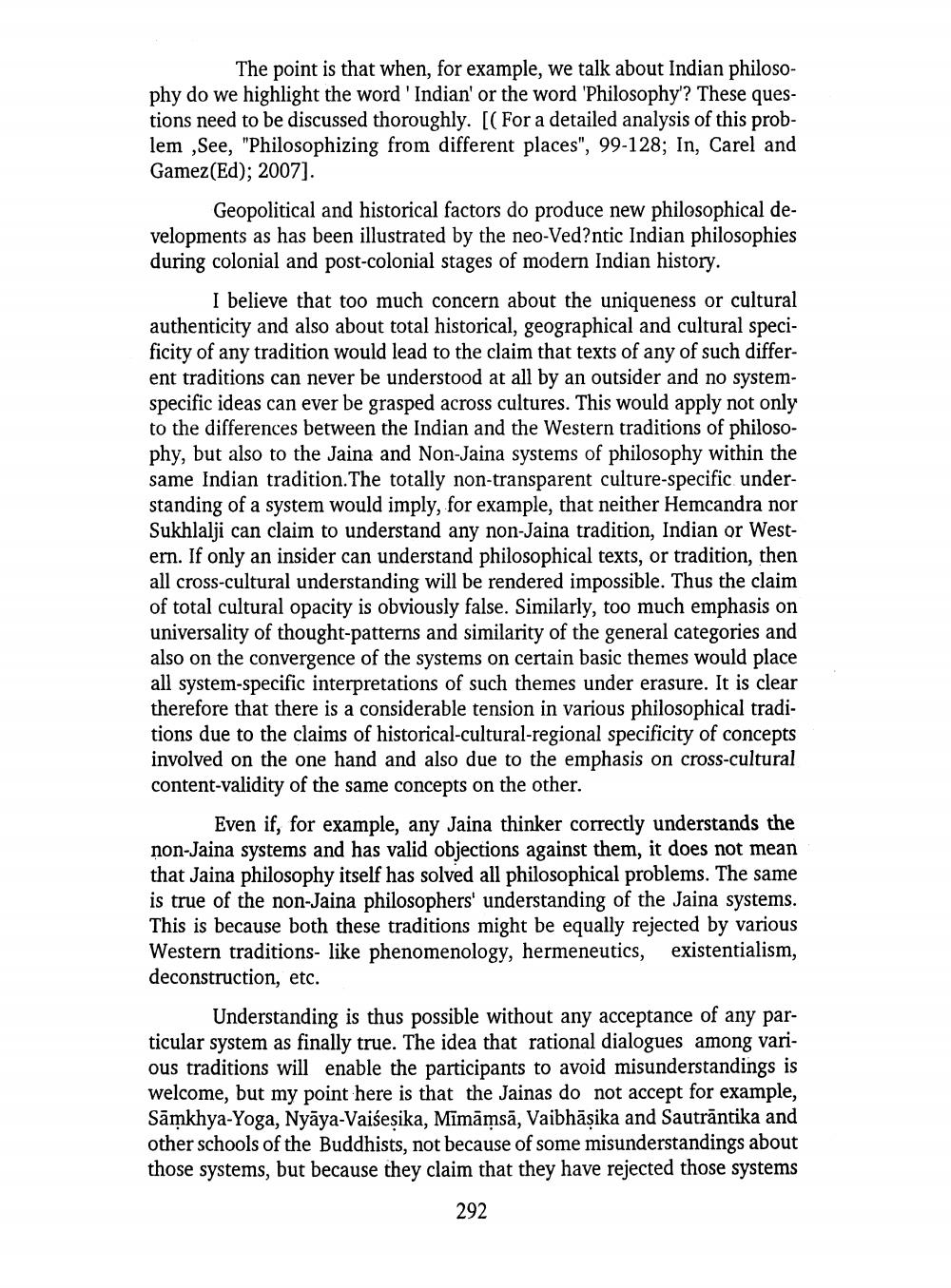________________
The point is that when, for example, we talk about Indian philosophy do we highlight the word 'Indian' or the word 'Philosophy? These questions need to be discussed thoroughly. [(For a detailed analysis of this problem See, "Philosophizing from different places", 99-128; In, Carel and Gamez(Ed); 2007].
Geopolitical and historical factors do produce new philosophical developments as has been illustrated by the neo-Ved?ntic Indian philosophies during colonial and post-colonial stages of modern Indian history.
I believe that too much concern about the uniqueness or cultural authenticity and also about total historical, geographical and cultural specificity of any tradition would lead to the claim that texts of any of such different traditions can never be understood at all by an outsider and no systemspecific ideas can ever be grasped across cultures. This would apply not only to the differences between the Indian and the Western traditions of philosophy, but also to the Jaina and Non-Jaina systems of philosophy within the same Indian tradition. The totally non-transparent culture-specific understanding of a system would imply, for example, that neither Hemcandra nor Sukhlalji can claim to understand any non-Jaina tradition, Indian or Western. If only an insider can understand philosophical texts, or tradition, then all cross-cultural understanding will be rendered impossible. Thus the claim of total cultural opacity is obviously false. Similarly, too much emphasis on universality of thought-patterns and similarity of the general categories and also on the convergence of the systems on certain basic themes would place all system-specific interpretations of such themes under erasure. It is clear therefore that there is a considerable tension in various philosophical traditions due to the claims of historical-cultural-regional specificity of concepts involved on the one hand and also due to the emphasis on cross-cultural content-validity of the same concepts on the other.
Even if, for example, any Jaina thinker correctly understands the non-Jaina systems and has valid objections against them, it does not mean that Jaina philosophy itself has solved all philosophical problems. The same is true of the non-Jaina philosophers' understanding of the Jaina systems. This is because both these traditions might be equally rejected by various Western traditions- like phenomenology, hermeneutics, existentialism, deconstruction, etc.
Understanding is thus possible without any acceptance of any particular system as finally true. The idea that rational dialogues among various traditions will enable the participants to avoid misunderstandings is welcome, but my point here is that the Jainas do not accept for example, Samkhya-Yoga, Nyāya-Vaisesika, Mīmāmsä, Vaibhäsika and Sautrāntika and other schools of the Buddhists, not because of some misunderstandings about those systems, but because they claim that they have rejected those systems
292




